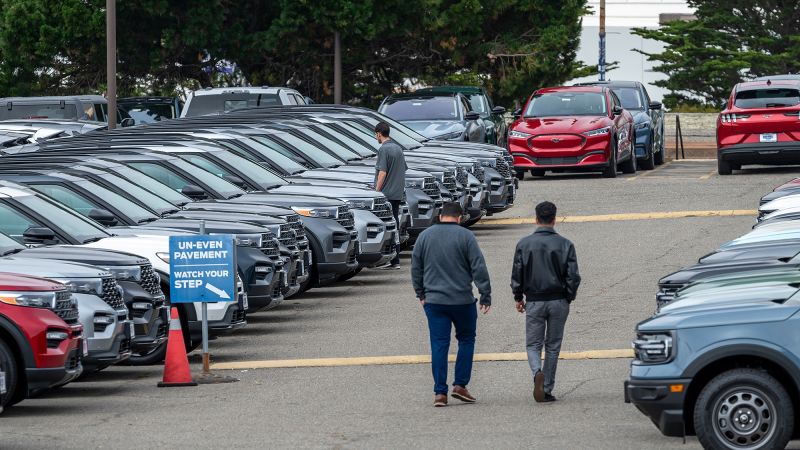
It’s becoming harder to get — and keep — a car
CNN
When Greg Cook’s car of 12 years, a 2010 Honda Fit, up and quit on him in May 2022, he knew it would land him “between a rock and a hard place.”
When Greg Cook’s car of 12 years, a 2010 Honda Fit, up and quit on him in May 2022, he knew it would land him “between a rock and a hard place.” He couldn’t afford to go without a car: He knew he’d be out of work soon — federal funding ran out for the Covid-19 response position he held for two years — and that the job hunt would be challenging because he relocated to a smaller, more affordable (but more remote) town in Oregon after losing his steady performing arts job to the pandemic. “When I’m filling out an application, one of the questions I’ve noticed is, ‘Do you have reliable transportation to get to and from work?’ ‘Can you commute?’” said Cook, 56. But without consistent work, he feared he couldn’t afford a car. Cook did the math, made a pros and cons list, and bought a new car. He locked in a low rate, but that was one of the few bright spots: Since that time, not only have the dozens of jobs applications been unfruitful; but Cook, like many other Americans, was slammed by exponentially rising prices. His car — the monthly payment, the fast-rising insurance, fuel and maintenance costs — takes up a 30% share of his monthly budget.





















 Run 3 Space | Play Space Running Game
Run 3 Space | Play Space Running Game Traffic Jam 3D | Online Racing Game
Traffic Jam 3D | Online Racing Game Duck Hunt | Play Old Classic Game
Duck Hunt | Play Old Classic Game









